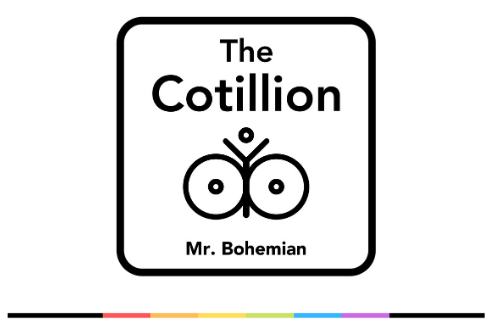Patient Refugee Rhapsody, by Yussef El Guindi, Dr. 2's Diagnosis
Patient: Refugee Rhapsody
Parents: Yussef El Guindi
Insurance: Paperkutz
Symptoms: star-struck, poverty-stricken
Diagnosis: It came from the bargain bin.
Bio:
Playwright Yussef El Guindi won the American Blues Theater, Blue Ink Award for 2021. Out of 820 submissions, it's hard to imagine how poor the runner ups were if Guindi was the paid champion. The American Blues Theater should be charged a fine by the drama police for quadruple the amount, under the charges of praising false talent.
Patient Description:
Sakinah and Fouad are callused lovers, working at the second-hand shop, Goodwill. One fateful day, they stumble upon some fancy dresses that turn out to belong to a local aristocrat, Emily. Emily voices sympathy and action for the current affairs of the Middle East at one of her parties. Sakinah and Fouad crash one of these parties—with Fouad in drag—wearing one of Emily's old dresses found at Goodwill.
The party was over quick. Emily is an impossibly magnanimous white devil, while Fouad is the starving, kicked puppy she's been looking to nurse into a show dog. Guindi intended to portray this personality contrast, but both characters are saccharine off the charts: Emily breastfeeding Fouad thousand dollar caviar along Fouad's simpleton monologues of gratitude.
It was a consistent cringefest. I literally just kept cringing and cringing and cringing, every time Fouad congratulated Emily on being rich, and when Emily apologized for it. These characters had zero impact.
The play script had a horrible case of the maybies in the directing parentheticals. (X and Y do Z—maybe?) (Lights dim for X's entrance—maybe?)
The only character of merit is Sakinah. She's used to a hard life; so she was pre-conditioned to handle the story's rigor. She stands in-between the two worlds Guindi means to collide: the irreverent white world that knows nothing of third world suffering, and the scrappy world itself that prefers not to talk about it at glamorous fundraising parties.
For a play that attempts to mock racial fawning from white America, Guindi is ironically his own target. There is nothing more than faint mentions of Middle Eastern struggles that have brought this incomplete play to an adoring limelight. What is there to observe, in a play merely requesting we observe?






![Patient: The Lesbian Play, by Riley McCarthy [Dr. 2's Diagnosis]](https://images.squarespace-cdn.com/content/v1/58021acae6f2e1e0f201eb77/1633918664478-ZX1ORTMR3W24XF9B5H7C/The+Lesbian+Plan+Dr+2+frame.png)










